After nearly 2 years, Ukraine appoints Fegyir Sándor, ‘teacher from the trenches’, as ambassador to Hungary
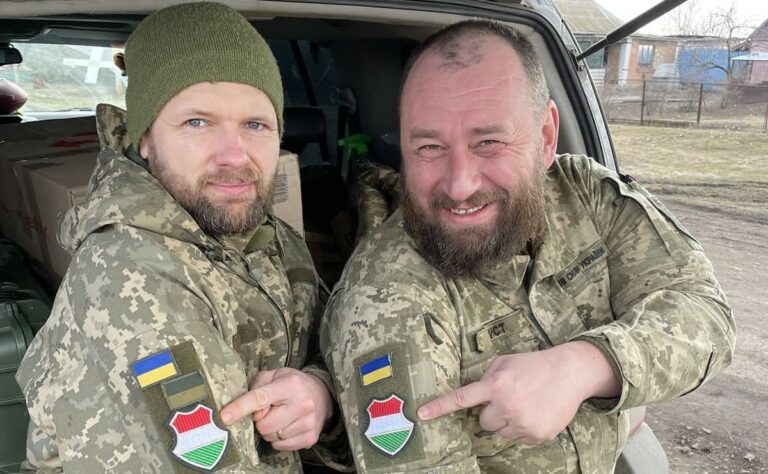
Ukrainian President Volodymyr Zelensky has officially appointed Fegyir Sándor as Ukraine’s ambassador to Hungary, ending a nearly two-year period during which the country was represented only by an acting ambassador in Budapest.
Long-delayed appointment
Sándor’s appointment had been under consideration since early 2023, but significant delays postponed the decision. One of the reasons for the holdup, as reported by HVG, was resistance within Ukraine’s Ministry of Foreign Affairs, where some officials preferred a different candidate. Additionally, Sándor had to wait for (then-) Hungarian President Katalin Novák to issue the diplomatic accreditation, which was finalised only in August 2023, Telex reports.
András Rácz, a Russia expert, commented on Sándor’s appointment in a Facebook post, stating, “His task won’t be easy for several reasons… but I’m confident he’ll excel in this role as well.”
A multifaceted background
Born in Uzhhorod in 1975, Fegyir Sándor comes from a multicultural family—his father is of Hungarian-Slovak descent, while his mother has Ukrainian-Italian roots. Sándor studied history at Uzhhorod National University, later pursuing legal studies and earning advanced academic degrees in sociology and philosophy.
Before entering politics, he taught history and geography at an elementary school in Uzhhorod and led the Zakarpattia tourism office for a time. In 2020, he joined Volodymyr Zelensky’s Servant of the People party and was elected to the regional parliament of Zakarpattia (Transcarpathia).
From the trenches to diplomacy
Sándor gained international attention during the early months of Russia’s invasion of Ukraine in 2022. As a professor at Uzhhorod National University, he volunteered for the Ukrainian military and became known as the “professor from the trenches” after a photo emerged of him conducting online university lectures on tourism while stationed near the front lines.
In an interview with HVG, he emphasised the symbolic importance of his service as a Hungarian-speaking Ukrainian defending his homeland:
“I’m living proof that Hungarians, like other ethnic groups in Ukraine, are defending their families and homeland. We maintain close contact with the Hungarian people and are immensely grateful for the assistance from Hungarian volunteers and friends.”
Mission in Hungary
Sándor steps into a challenging diplomatic role amid tense relations between Kyiv and Budapest. Ukrainian leaders have often criticised Hungarian Prime Minister Viktor Orbán for his perceived alignment with Russian interests within the EU.
In a recent interview with 444.hu, Sándor dismissed the notion that Orbán is pro-Russia but stressed that Ukraine represents an asset to Europe. If appointed ambassador, he once said, he would suggest to Orbán that they visit Székesfehérvár together:
“There’s much to discuss.”
Hope for a new era
As Ukraine’s new ambassador to Hungary, Fegyir Sándor faces the formidable task of navigating strained bilateral relations while representing a multicultural, united Ukraine on the international stage. His appointment, coupled with his unique personal and professional background, offers a fresh opportunity to strengthen ties between the two nations.
Read also:
According to Hungarian FM Szijjártó, the President of Ukraine launched an “ugly campaign” of provocation
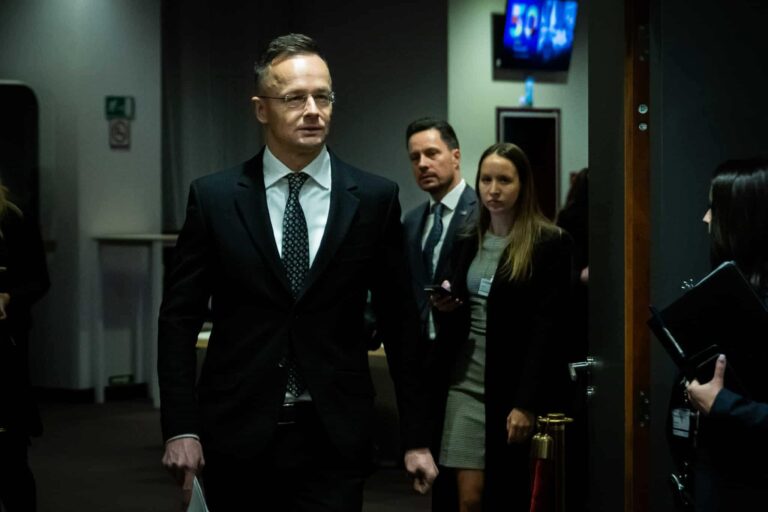
The President of Ukraine has launched “an ugly campaign” against Hungary in the international arena in recent days, but “one should not fall for his provocations”, the foreign minister said on Thursday, prior to attending a general assembly meeting of the United Nations in New York.
According to a foreign ministry statement, Péter Szijjártó said that the Hungarian government’s position had proven right during the past one thousand days of the war in Ukraine: the war has no solution on the battlefield and the only way to settle the armed conflict is through negotiations.
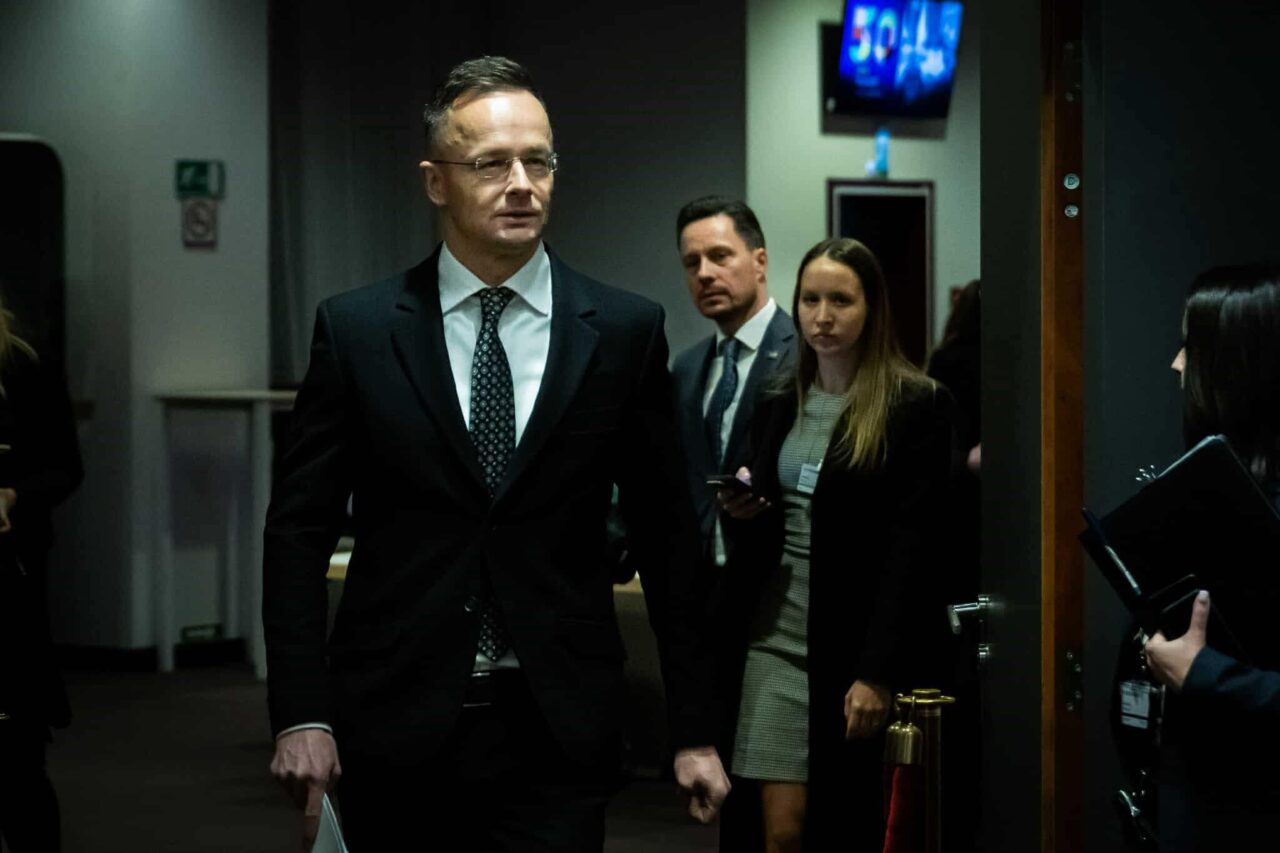
He said that “after more than one thousand days there are still those who are unable to see that an overall new reality has developed: the Russians are forging ahead more and more intensively day-by-day against Ukraine, while here, in the United States a pro-peace politician has won the presidential election and his inauguration is getting closer and closer”.
Szijjártó said it was regrettable that “the American Democrats and Western European liberals have launched a bitter attack in a last-ditch effort” to thwart the efforts towards peace of the incoming president who will take office on 20 January. He noted that President-elect Donald Trump had made a clear statement in recent days promoting peace and calling for peace talks.
“It is high time for Western European leaders to understand that Donald Trump is a serious person… He made clear during his presidential campaign that he had an interest in creating peace fast, and this must be taken seriously,” Szijjártó said.
After Trump’s taking office, standpoints about migration will change around the world, the foreign minister said.
Read also:
New survey: How much do Hungarians trust Trump to end the Russia–Ukraine war?

Fully 77 percent of Hungarians thinks that president-elect Donald Trump stands a good chance of ending the war in Ukraine in 2025, a survey published by pro-government Századvég on Tuesday has shown.
Prime Minister Viktor Orbán met Ukrainian President Volodymyr Zelensky, Russian President Vladimir Putin, Chinese Presidenet Xi Jinping and Trump, then the Republican presidential nominee, in July, “with the aim of gauging the stance of the warring parties and promoting peace”, the think-tank said in connection with the survey, conducted with a sample of 1,000 people.
The “peace mission” had been harshly criticised by the Brussels elite, Századvég said.
“The survey shows that, unlike Brussels leadership, the Hungarian public backs Orbán’s efforts to hasten the end of the war,” the think-tank said.
Fully 68 percent of respondents agreed that Orbán promoted ending the war. “Thanks to the pro-peace stance of Hungary, 74 percent opposes the US government and certain EU member states shipping long-range missiles to Ukraine, it said.
Further, 77 percent of Hungarians considered there was a realistic chance that Trump would successfully end the conflict in 2025, it added. Fully 51 percent of respondents had a positive view of Trump, the survey showed.
Unarmed Ukraine against the Russians?
It is important to underline that the Hungarian government has been saying for years that Ukraine should not be given arms, which would have meant that Russia would have been crushing our eastern neighbour.
Even yesterday, the Hungarian Foreign Minister said that although the Russians were attacking, the Ukrainians should not be given weapons to defend themselves. Related article: Orbán cabinet did everything to stop Ukraine getting aided arms shipments, but failed – details here
Several analysts have recently said that Trump wants peace, but it may be in the US’s interest not to strengthen Russia by doing so. Yet, at the moment, aggressor Russia is attacking in force, and Ukraine still needs a lot of help to keep up the attacks. The idea of peace is also very different for Ukrainians, whose territories are occupied, and for other countries that are watching from the outside and whose territorial integrity is not at stake.
The results of the current public opinion poll show very clearly that the Hungarian government’s powerful communication has reached the electorate, and they have taken it on board.
As we wrote yesterday, the Budapest-Kyiv train service has been restored; details are HERE.
Great news for travellers: Budapest-Kyiv train service restored
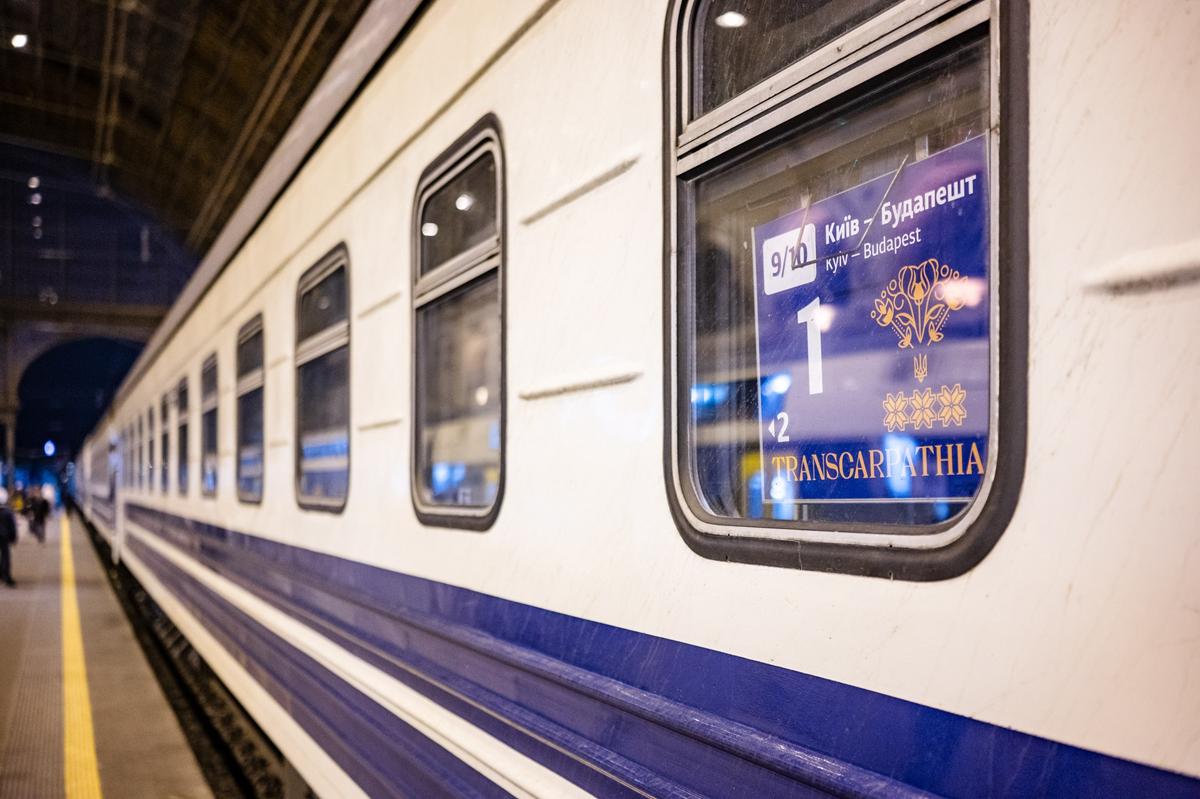
The Transcarpathia (Kárpátalja) international high-speed train, consisting of Ukrainian sleeper cars, will now operate nightly between Budapest and Kyiv, MÁV announced on Monday on its website.
The train will cover a distance of nearly 1,200 kilometres via Lviv, Mukachevo (Munkács), and Debrecen. The train from Budapest to Kyiv departs at 22:40 and arrives the following evening at 19:11. Conversely, the train from Kyiv to Budapest departs at 10:16 in the morning and arrives at 6:00 the next morning. The journey time is 20.5 hours—five hours longer than before the outbreak of the war, when the journey took approximately 15 hours.
For the entire journey between Budapest and Kyiv, second-class tickets are available for €48.10, with sleeping berths costing an additional €10, depending on the type of berth.
The first train departed Kyiv on Sunday morning and arrived in the Hungarian capital on Monday morning. In a video shared on her social media page, the speaker expressed MÁV’s pride in contributing to the cooperation between Ukraine, the Ukrainian people, Hungary, and the Hungarian people.
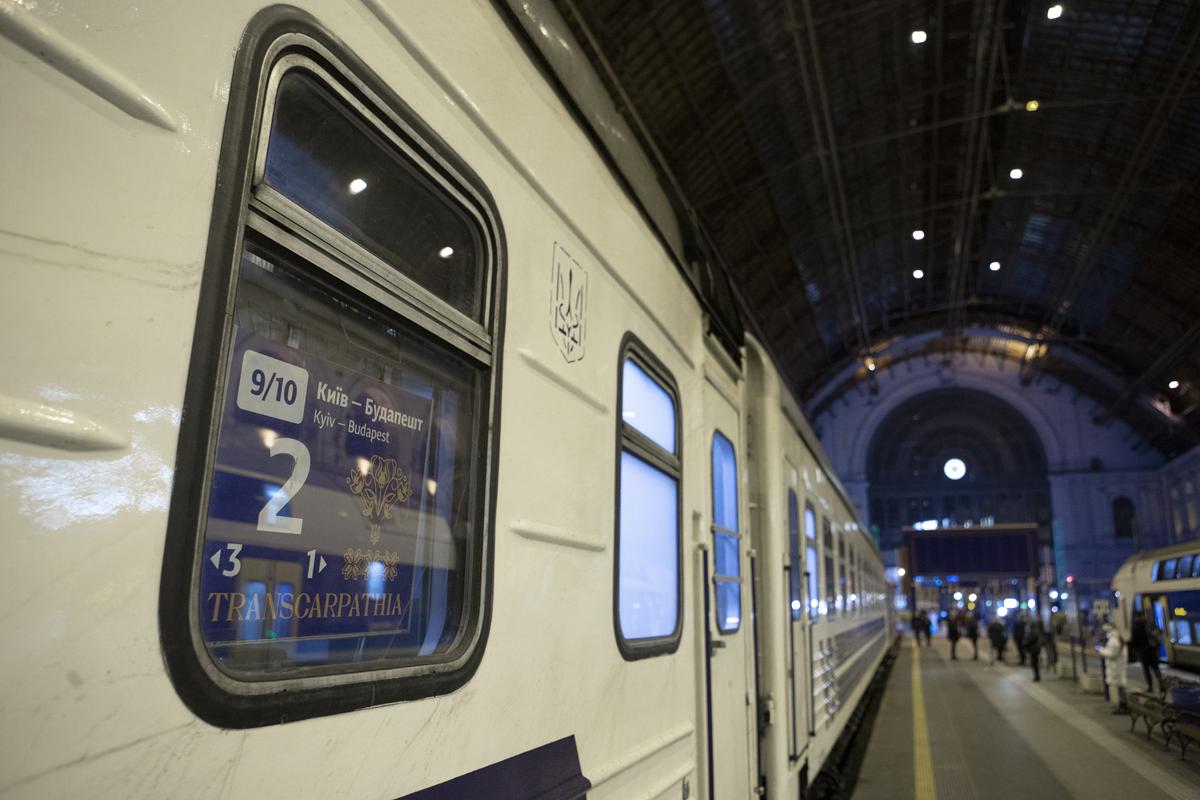
Orbán cabinet did everything to stop Ukraine getting aided arms shipments, but failed

The Hungarian government has refused to contribute 6.5 billion euros of compensation to European Union member states that have shipped arms to Ukraine, Péter Szijjártó, the foreign minister, said in Brussels on Monday.
Szijjártó told a press conference after a meeting of the EU Foreign Affairs Council that Hungary raised the sole veto to the payment of approximately 6.5 billion euros from the European Peace Facility to member states that have supplied weapons to Ukraine, thereby withholding around 77 million euros of Hungarian money. He added that neither Hungary supplied weapons nor contributed to the arms shipment. But if the other EU member states “want to do so voluntarily, Hungary will not stand in their way”, he said.
He added that Hungary will not give a nod to relocating an EU training mission coordination unit to Kyiv or the deployment of EU advisors to Kyiv to coordinate the reform of the Ukrainian security sector. Szijjártó said deploying people to Kyiv for the purposes of training, coordination, and advice as part of an EU program was “extremely risky” and risked escalation. Regarding the 15th sanctions package against Russia, which allows Hungarian oil and gas company MOL to export products derived from Russian crude oil, the minister called the exemption “important”. “As we managed to strip out the crazy ideas … we did not veto it in the end,” he said. Commenting on the attempt to put Patriarch Kirill on the sanctions list, he said punishing church leaders “should be avoided at all costs”, adding that all hopes for peace would be lost if lines of communication involving churches were cut.
read also: Hungary and Ukraine propose EUR 1 billion EU-funded infrastructure plan to boost connectivity
Also, he said the EU had tried to put Russia’s UN ambassador on the list, “which is strange as the UN is the last port of call for political consultations…” “We vetoed this and also signaled that we won’t at all support the sanctioning of the Russian Olympic Committee. Mixing sports and politics … is unacceptable.” Szijjártó said a new reality had emerged in the war in Ukraine owing to the election win of Donald Trump and to Russian military victories on the battlefield. Far from being “Putinist propaganda,” he added that even his Ukrainian counterpart had confirmed the facts on the ground. He said that, “sadly”, this new state of affairs had been ignored in Brussels as most EU member states were still pushing a “failed war strategy” and feeding the risk of escalation. Regarding a Christmas truce, he said no one at today’s council meeting had backed a ceasefire “that would save lives”. He added that some at the meeting had even spoken against the proposal of a truce. Szijjártó called his Polish counterpart’s suggestion that Ukrainian men of military age living in the EU should have their social support withdrawn “harsh”.
read also: A surge of Ukrainian refugees: the disappearing Hungarian identity in Transcarpathia
Hungarian foreign minister: Not even the approaching Christmas holidays can dampen the warlike mood in Brussels

“Not even the approaching Christmas holidays can dampen the warlike mood in Brussels,” the foreign minister said on Facebook on Monday.
Péter Szijjártó posted his remarks ahead of the last meeting of his European Union counterparts in Brussels this year, saying proposals on the agenda for the meeting reflected that “the majority still does not see the new realities”. “While an opportunity for achieving a ceasefire and exchanging prisoners of war has been tabled, they still want to reallocate over 6 billion euros for weapons to Ukraine,” Szijjártó said.
“They are pressing Ukraine to send 18-year-old boys to the front, and sanction Georgian officials just because Georgian voters dared to elect a sovereigntist government,” Szijjártó said. The minister said he anticipated “a great fight” at the meeting, but added that “the Hungarian government insists on its pro-peace stance: Ukraine calls for a ceasefire rather than more weapons.”
PM Orbán: Hungary proposed Christmas ceasefire, Zelensky rejected it

“At the end of the Hungarian EU presidency we made yet another effort for peace,” Prime Minister Viktor Orbán said in an entry posted on X on Wednesday evening.
Orbán proposes Christmas ceasefire
“We proposed a Christmas ceasefire and a significant exchange of prisoners of war. Regrettably, Ukrainian President Zelensky point-blank rejected this (proposal) … We have done what we were able to,” Orbán wrote.
Prior to the post, Zelensky voiced resentment that Orban had made a phone call to Russian President Vladimir Putin. Zelensky said peace and security in his country required “decidedness by the US, unity in Europe, and commitment by all partners in line with the United Nations Charter, its objectives and principles”. “No one should boost (their) personal image at the expense of unity” but focus on Europe’s common success, Zelensky said. “There can be no discussions about the war that Russia wages against Ukraine without Ukraine,” Zelensky said.
“We all hope that PM Viktor Orbán at least won’t call Assad in Moscow to listen to his hour-long lectures as well,” the Ukrainian president added.
Read also:
Hungarian FM Szijjártó: Hungarian government proposed Christmas ceasefire, exchange of POWs

Hungary’s government has proposed a Christmas ceasefire and prisoner exchange in Ukraine, but the Ukrainian leadership has rejected it, Foreign Minister Péter Szijjártó said in Budapest on Wednesday.
Szijjártó talks about Hungary’s proposal
Szijjártó said that after Prime Minister Viktor Orbán tabled the proposal during a phone call with Russian President Vladimir Putin, the Hungarian government contacted Ukrainian Foreign Minister Andrii Sybiha and Andriy Yermak, the head of the Ukrainian presidential office. “The communication channels are open in every direction, and we would like to keep them that way, as that is the only hope for peace and for peace talks,” Szijjártó said, according to a ministry statement.
“What a shame that President Zelensky, in a public post on X a few minutes ago, excluded and rejected everything we talked about in the morning,” Szijjarto said.
“We have done everything in our power. The Hungarian peace mission was a constant theme of the Hungarian presidency, and we hope that peace will soon return to the region. It is obvious that we will have to make strenuous efforts for that,” he said.
Meanwhile, Szijjártó said he also had talks with Alexandr Novak, the Russian deputy prime minister for energy affairs, and “clarified legal solutions that will ensure preserving the Hungarian-Russian energy cooperation, and so Hungary’s energy security.”
Read also:
Átlátszó: Sanctioned Belarusian businessman has been involved in shady deals in Hungary
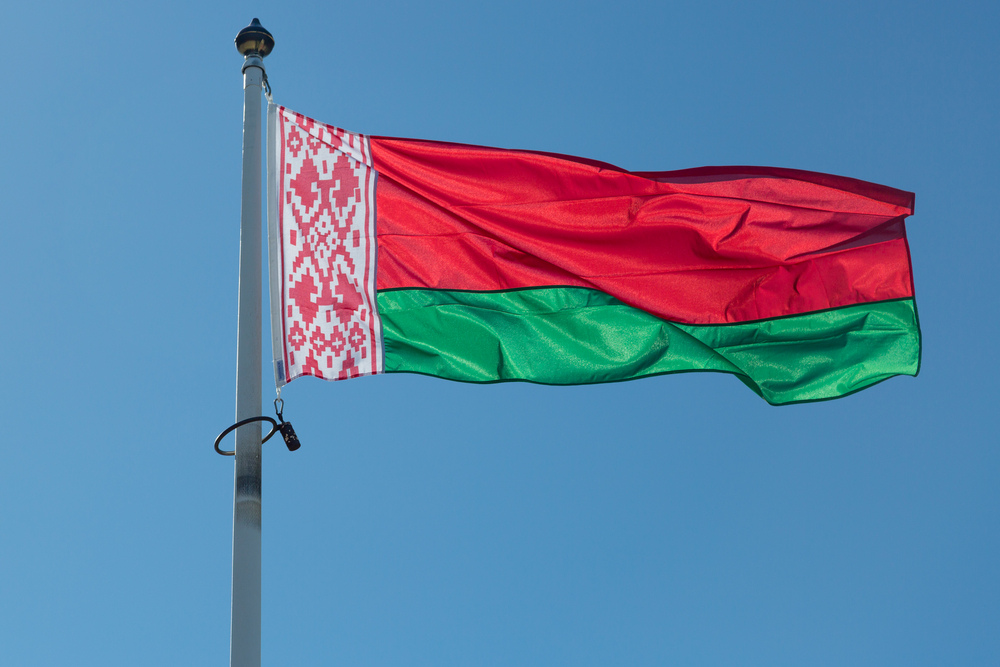
A Belarusian businessman, Viktor Chevtsov, previously accused of financial crimes and closely tied to the Lukashenko regime, was found to have registered a company in Hungary despite being under EU sanctions. His company, PS Commodities Ltd., reported hundreds of millions of forints in revenue over several years without visible activity, leading to its closure by Hungarian authorities this year.
Suspicious business operations in Hungary
In August, the Belarusian Investigative Center (BIC) informed Hungarian investigative portal Átlátszó about Chevtsov’s potential business operations in Hungary. Subsequent investigations confirmed that PS Commodities Ltd., registered in 2019, operated without clear activities yet reported substantial revenues, including HUF 346.57 million (EUR 842,100) last year. The company’s headquarters was listed at a Budapest apartment, raising questions about its legitimacy.
The National Tax and Customs Administration (NAV) suspended PS Commodities after determining its owner was subject to sanctions for undermining Ukraine’s sovereignty and territorial integrity.
Links to residency bond scandals
Chevtsov’s company is also connected to a Hungarian woman, Krisztina Simon, who was involved with the VolDan Investments firm, previously active in Hungary’s controversial residency bond program linked to Minister Antal Rogán, Átlátszó wrote. The program facilitated EU residency for foreign investors, often criticised for its lack of transparency.
Simon’s association with Chevtsov highlights further concerns, as her listed address overlaps with one registered by the Belarusian businessman. VolDan Investments, connected to Rogán’s associate Shabtai Michaeli, had faced allegations of financial misconduct.
Chevtsov’s dubious history
Chevtsov, known for his ties to the Lukashenko regime, managed financial operations in Belarus during the 1990s, including positions in Infobank, later accused of laundering profits from illegal arms trade. The U.S. Department of Justice also implicated Infobank in laundering funds for Saddam Hussein’s regime.
In recent years, Chevtsov became a major shareholder in a Belarusian company that monopolised hologram production under the Lukashenko government. This enterprise played a role in supporting Ukraine-related aggression, prompting EU sanctions.
Fictitious business activities
PS Commodities claimed involvement in diverse industries, including fruit trade, chemicals, and MOL lubricants. However, MOL denied any connection. Despite PS Commodities’ claimed global operations, the company had no visible workforce or physical office.
This case marks the first known instance of an EU-sanctioned individual facing asset-related action in Hungary. It underscores concerns over Hungary’s vulnerabilities to questionable financial activities, particularly by individuals tied to controversial regimes. The involvement of entities linked to Hungary’s residency bond programme adds another layer of scrutiny to a scheme already fraught with allegations of misconduct.
Read also:
- How Orbán’s family affairs sparked the 2018 overhaul of Hungary’s secret service
- Two Hungarians featured on Europol’s most wanted list
Featured image: depositphotos.com
Hungary and Ukraine propose EUR 1 billion EU-funded infrastructure plan to boost connectivity
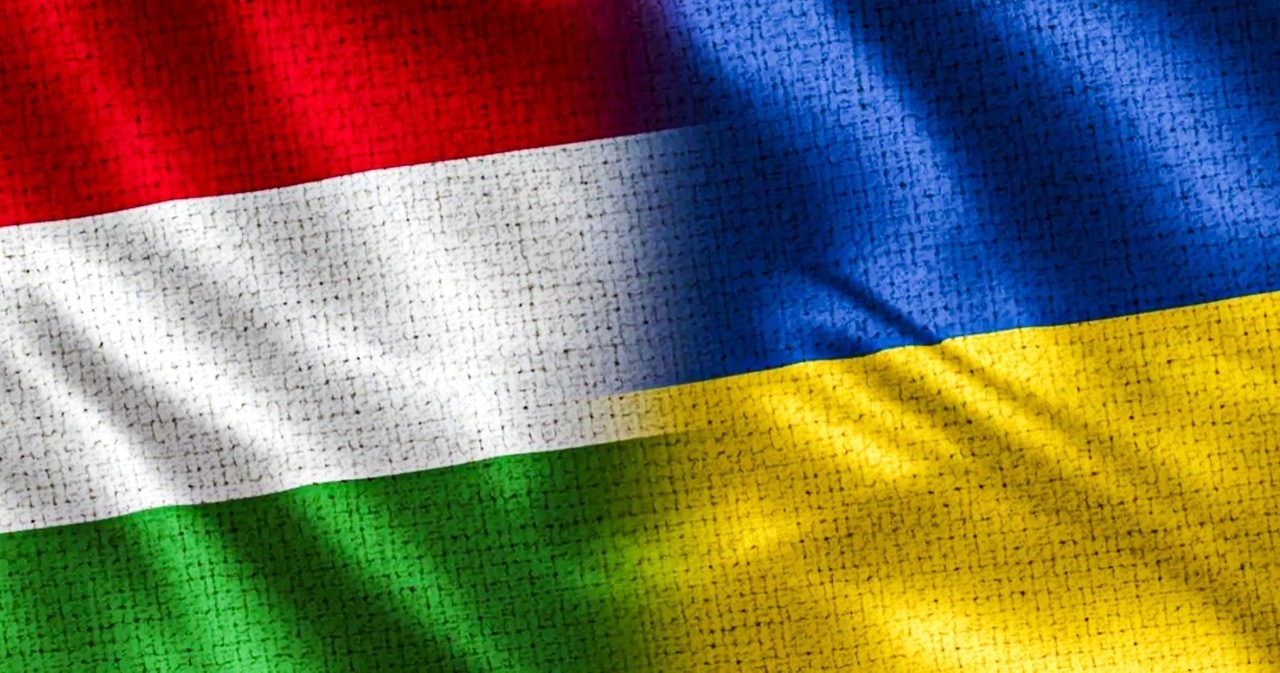
Hungary and Ukraine have submitted an ambitious EUR 1 billion joint infrastructure proposal to the European Union. The strategic initiative, which focuses on improving cross-border transport links, includes plans for new motorways, upgraded border crossings and the construction of a modern bridge over the Tisza River.
The project aims to strengthen economic ties between Hungary and Ukraine and their integration into wider European networks by streamlining the movement of goods and improving regional connectivity. At the core of this initiative is a commitment to create seamless transport corridors between Hungary and Ukraine.
According to Magyar Építők, the plan outlines key infrastructure upgrades that promise to reduce bottlenecks and facilitate a more efficient flow of goods and people. This important step not only strengthens bilateral relations but also contributes to the EU’s vision of a more connected Europe.

New motorways and border crossings
Two major motorway projects will transform regional connectivity. One link will connect the cities of Záhony in Hungary and Csap in Ukraine, including the construction of a state-of-the-art bridge over the Tisza River. This new infrastructure will play a key role in improving cross-border trade and mobility.
Another cornerstone of the proposal is the redevelopment of the Lonya-Haranglab border crossing, which will soon accommodate freight traffic. This development is expected to improve traffic flow and reduce delays by diverting heavy vehicles from the congested Záhony crossing.
The Beregsurány-Asztély border crossing is undergoing a major upgrade to meet the demands of increased cross-border traffic. On the Ukrainian side, a major renovation and capacity expansion is planned to triple the crossing’s throughput capacity by 2026. In particular, the site has already begun to handle empty lorry traffic, marking the first phase of a comprehensive development strategy. This progress will establish Beregsurány as a key transport hub for the region.
Plans for a new border crossing between Nagyhódos in Hungary and Nagypalád in Ukraine signal further investment in regional mobility. This will be the sixth operational crossing between the two countries. Together with improvements at Asztély and Harangláb, these developments aim to reduce congestion at existing border crossings, particularly at the busy Záhony crossing.
Long-term plans and regional impact
Hungary’s ongoing commitment to expanding its motorway network reflects its broader vision of improved connectivity with Ukraine. Notable projects include the extension of the M3 motorway from Vásárosnamény to Beregsurány and the construction of the M34 expressway towards Záhony. These investments are crucial to strengthening the infrastructure that underpins cross-border economic cooperation.
This comprehensive development programme is about more than just improving transport infrastructure. It aims to increase the competitiveness of the entire region By improving the movement of goods and enhancing road safety. The resulting economic growth will strengthen the position of Hungary and Ukraine within the European Union and its economic networks.
The programme also reflects a forward-looking approach to regional integration. It emphasises the importance of strategic partnerships and the role of robust infrastructure in promoting economic resilience. Improved connectivity will not only benefit Hungary and Ukraine, but also reinforce the EU’s commitment to building a more united and economically vibrant Europe.
Read also:
Szijjártó in Washington: Hope for Ukraine peace hinges on US leadership transition
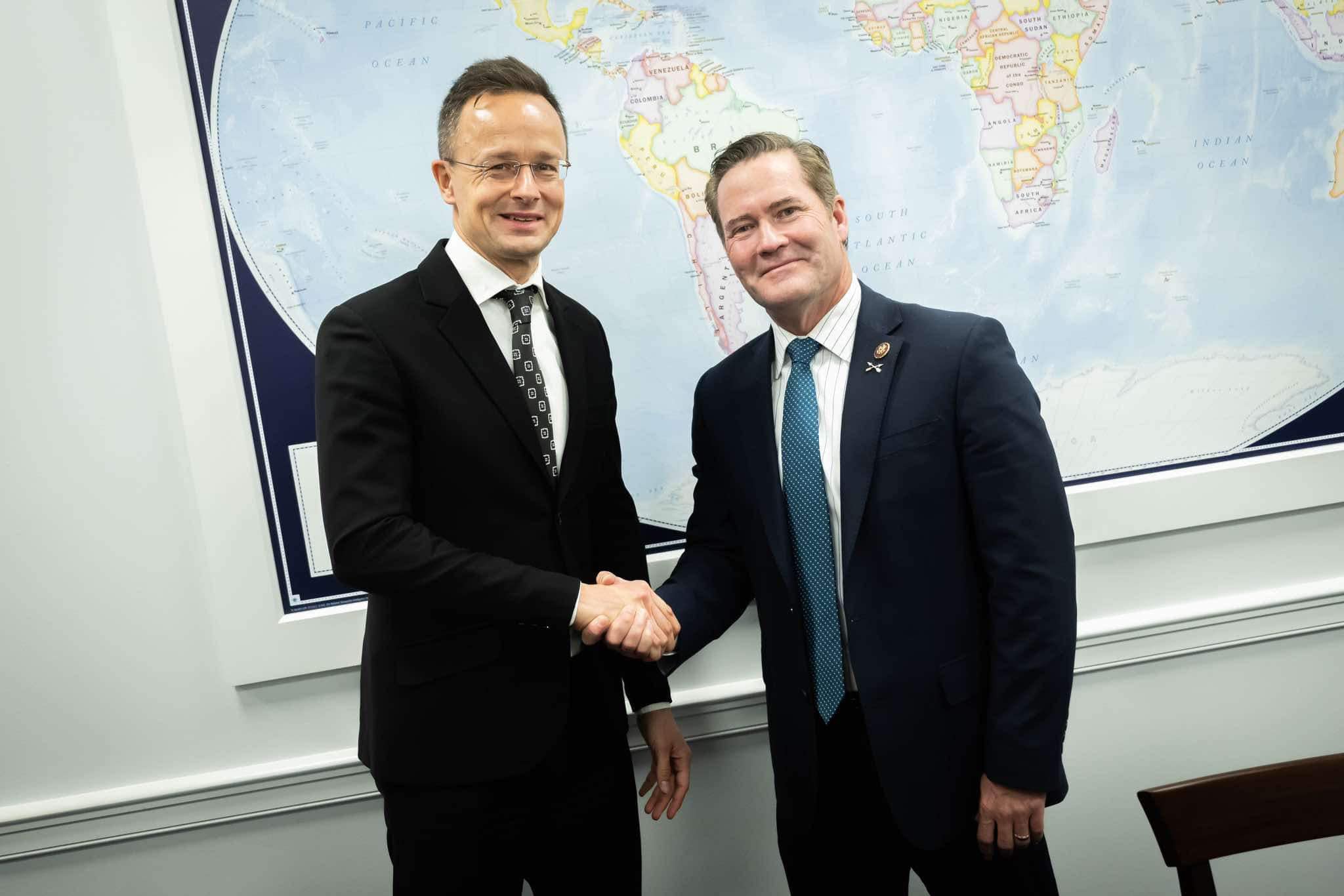
In the wake of the US presidential election, an end to the conflict in Ukraine seems closer than ever, even as the danger of escalation is the greatest yet as “the outgoing US administration is trying to make brokering peace after 20 January impossible”, the minister of foreign affairs and trade said in Washington, D.C., late on Wednesday.
According to a ministry statement, Péter Szijjártó met House Representative Mike Waltz, a Republican for Florida tapped to serve as national security advisor in the incoming administration headed by Donald Trump, and welcomed that the post would go to a member of the Congressional Hungarian-American Caucus.
Szijjártó said the “friendly talks” touched on geopolitical issues including the war in Ukraine. “It is no coincidence that the issue of the war in Ukraine, whether to end it or continue it, was one of the most important questions in the US presidential campaign, and while Donald Trump said clearly he wanted to end the war, Kamala Harris fought for continuing it.”

He said Hungary was “rooting for Donald Trump’s aim to conclude the war quickly to become reality”, and said that keeping channels of communication open was extremely important.
Regarding US-Hungarian relations, Szijjártó said “the fact that US Republicans and we Hungarian patriots have similar, and occasionally perfectly aligned, views on the most important issues of world politics” would be certain to give a stable foundation to a renewed relationship.
He pointed to the fight against illegal migration and the protection of borders and sovereignty as examples. “We want to base our policies on common sense, family is a priority for both administrations, and we both speak the language of peace.”
The most important “takeaway” of the talks with Waltz was that “we speak the language of peace and that the risk of escalation is as clear for the US as it is for us, in the neighbourhood of the war,” Szijjártó said.
At the meeting of NATO foreign ministers in Brussels earlier this week, the incumbent US Secretary of State had a “very different approach”, Szijjártó said. He lamented that 8 member states have yet to boost their defence spending to 2 percent of GDP. NATO also requires that 20 percent of that be ploughed into modernisation and new purchases; in Hungary, that ratio is at 48 percent. “That is one way we contribute to NATO’s strength,” he said.
Read also:
Orbán and Meloni discuss bilateral ties, migration, and Ukraine reconstruction in Rome
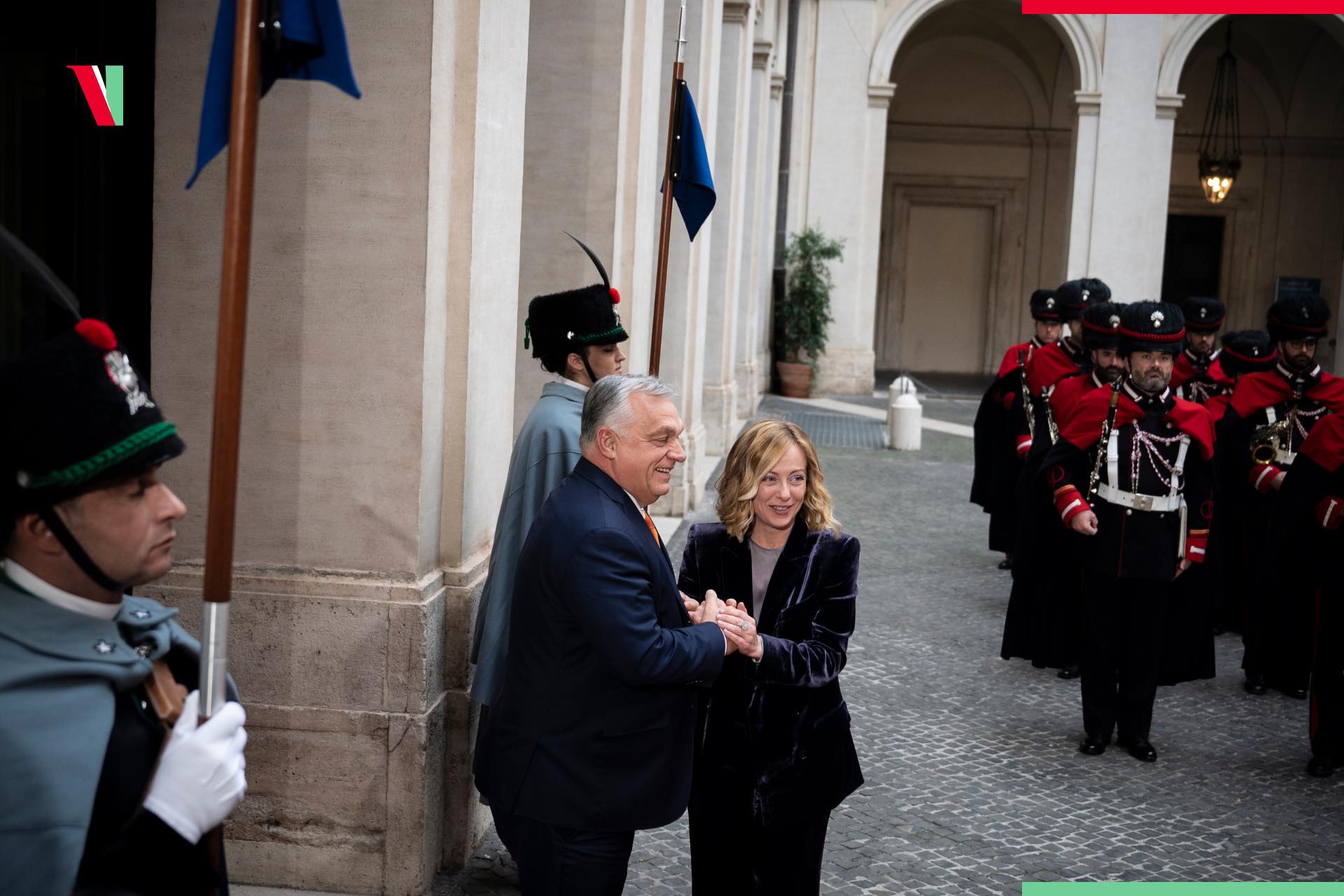
Italian Prime Minister Giorgia Meloni received Hungarian Prime Minister Viktor Orbán in her office on Wednesday, Orbán’s press chief said.
Meloni congratulated Orbán on Hungary’s successful EU presidency, especially with regards to the Budapest declaration on competitiveness and to opening accession negotiations with Albania, Bertalan Havasi said. During Hungary’s tenure, there had been a “breakthrough” in Bulgaria and Romania’s accession to the Schengen Area too, she said.

Meloni and Orbán reiterated their commitment to further deepening their countries’ bilateral partnership, and said that trade reached 14 billion euros in 2023. There is room for further improvement, too, especially in the infrastructure and energy sectors, they said.
The prime ministers pledged to boost the intensity of political dialogue, and to coordinate on the most important international issues. They discussed the situation in the Middle East and a “fair and sustainable peace in Ukraine, based on the UN Charter and the principles of international law.”
They also talked about their commitment to reconstruction in Ukraine, in preparation for a conference on the topic slated to be held in July 2025 in Italy.
Italian-Hungarian cooperation is thriving in defence and security within the framework of NATO, especially regarding the 260 Italian troops in the multinational battalion under Hungarian command, they said. The two countries continue to support NATO and EU initiatives aiming to stabilise the Western Balkans, and support the EU integration of the region, the prime ministers said.
They also said new methods must be found to prevent and fight illegal migration in line with EU and international law, “along the lines of the agreement between Italy and Albania”, Havasi said.
In a joint statement after the meeting, Orbán and Meloni emphasised the importance of taking a stand against illegal migration, pledged to continue strengthening economic cooperation and praised defence cooperation within NATO.
Read also:
Hungarian FM Szijjártó: NATO must avoid risking collective defence over Ukraine membership
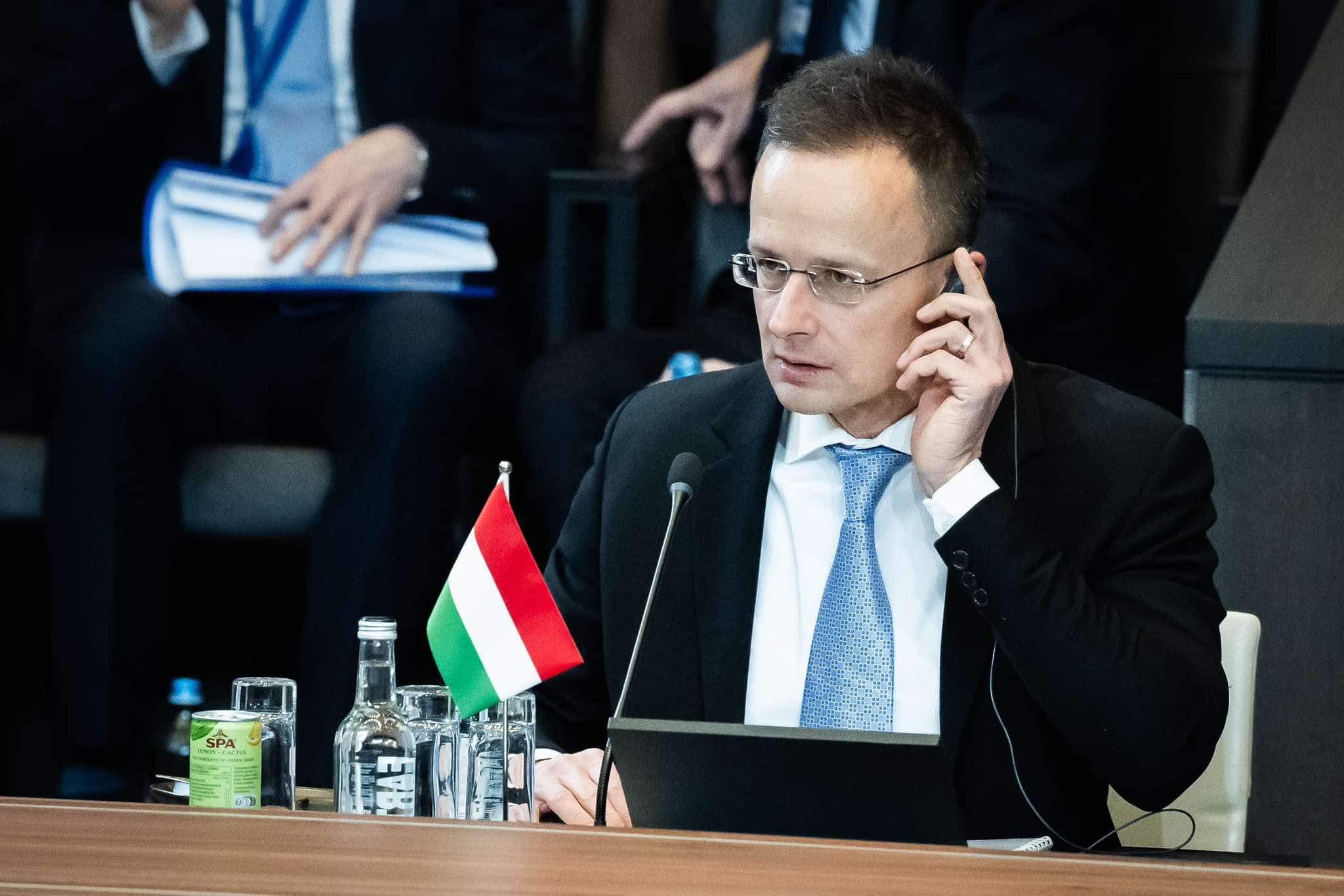
NATO’s collective defence should not be sacrificed or risked for any third country, Péter Szijjártó, the foreign minister, said in Brussels on Wednesday. “So it’s gratifying that no decision to invite Ukraine to join the defence alliance has been taken, as this could lead to a third world war,” he said.
At a press conference after a meeting of NATO foreign ministers, Szijjártó called the argument that Ukraine was fighting for European freedom and democracy “unbelievably blind”, adding that it was “fighting for its own freedom [and] sovereignty … which should be applauded but not confused with the idea that they are fighting for others.”

The idea that Ukraine, as a part of NATO, would enhance Europe’s security was “nonsense”, he said, adding that Hungary regarded any such invitation as risking a war between NATO and Russia.
Referring to Article 10 of the Washington Treaty stating that countries that can contribute to NATO’s security may be invited to join it, he said: “Clearly, this isn’t so right now in Ukraine’s case.”
He said the outgoing US administration and “pro-war politicians in Europe” had “launched another attack” to render a possible peace pact after January 20 impossible.
Szijjarto also noted that several ministers had demanded that Ukraine lower the conscription age, and this would lead to “even crueller conscription and the deaths of even more young Ukrainians on the front”.
Further, it was suggested at the meeting that new Ukrainian recruits should be trained and armed by NATO, he noted, adding that such proposals, including fresh arms shipments, would prolong the war, risk further escalation and be the cause of even more deaths.
Regarding the argument that peace talks should not be held now because Ukraine’s current battlefield position was unfavourable, the minister said that the situation was “persistently deteriorating”, and a lack of recognition of this state of affairs was feeding Ukrainians’ illusions. Talk of victory on the battlefield would do no more than “deceive and mislead people”, he added.
Szijjarto insisted that Hungary was “a reliable ally” that met its commitments to the alliance, spending more than 2 percent of its GDP on defence, while more than 1,000 Hungarian soldiers served in the alliance’s various missions.
Listing “red lines”, he said NATO must not be belligerent in the Ukraine-Russia war and it must avoid direct conflict with Russia.
Szijjarto said the meeting had confirmed that “the pro-war leaders remain determined, blinded, and … terrified of what will happen after January 20.”
“The lesson to be drawn is that the peace mission must be bolstered, diplomatic and communication channels kept open, and the option of rapid peacemaking preserved,” he said.
Read also:
A surge of Ukrainian refugees: the disappearing Hungarian identity in Transcarpathia
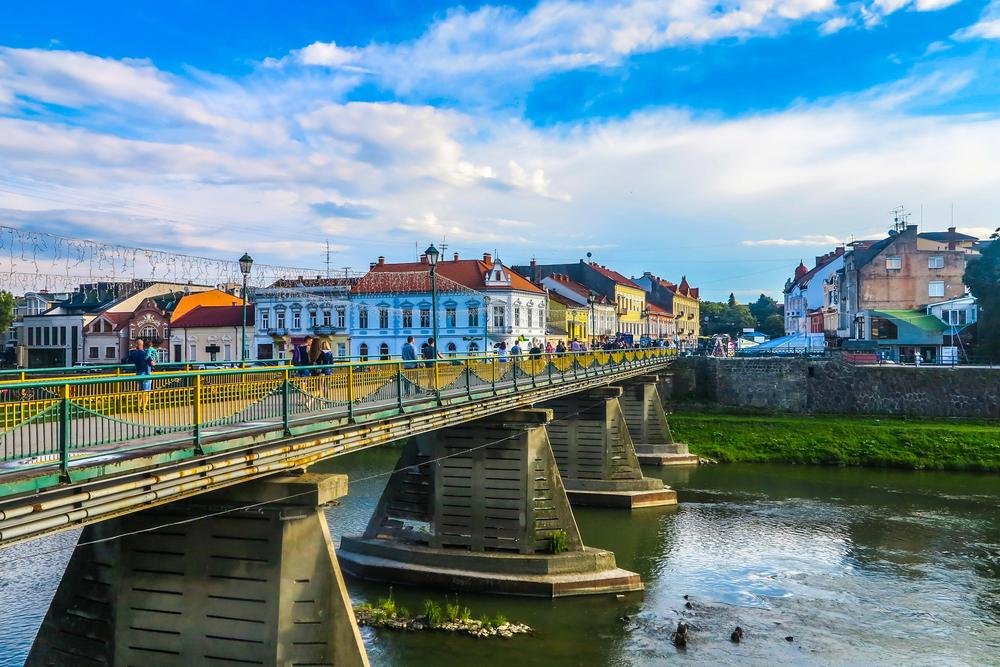
The Hungarian community in Uzhhorod (Ungvár), Transcarpathia (Kárpátalja), has been shrinking, and the consequences of this demographic shift are becoming increasingly evident. Amid the war and internal migration within Ukraine, the city’s population has surged, but the Hungarian majority that once defined it is now in decline. While new arrivals, mostly from other parts of Ukraine, are shaping the city’s future, the disappearance of the Hungarian identity remains a growing concern.
According to Mandiner’s report, Transcarpathia, Ukraine’s only region that has maintained a stable population since the war’s onset, now faces dramatic demographic shifts. While Ukraine’s overall population has plummeted to an estimated 20-25 million, half of the population that existed during the post-Soviet era, Transcarpathia’s population holds steady at around 1.25 million. However, 250,000 internally displaced Ukrainians have added to this total, significantly altering the region’s social and cultural makeup, with many Hungarians among those fleeing the conflict.
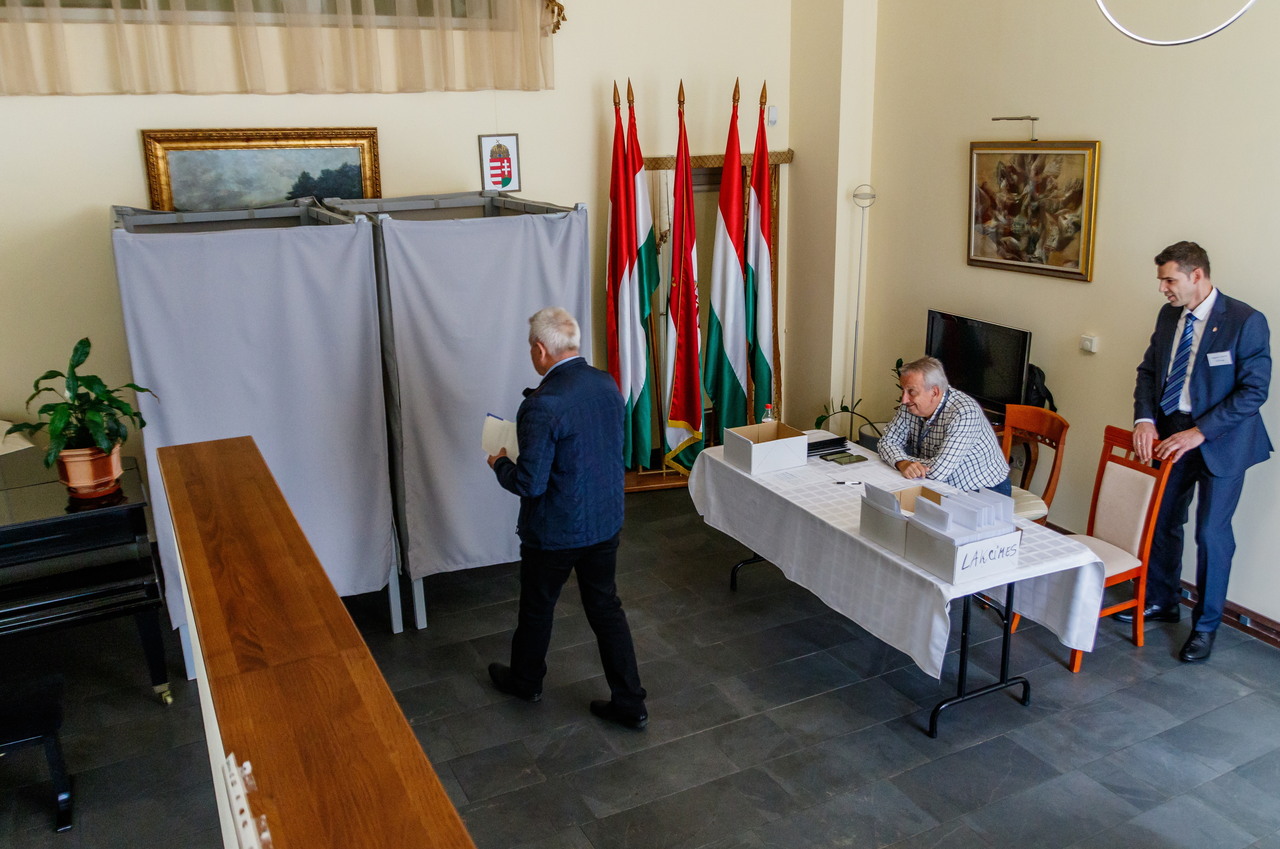
Housing shortage, sky-high rental prices in Transcarpathia
Uzhhorod, once a city of 120,000, has grown substantially, with estimates now putting its population at around 200,000, according to György Dunda, newspaper director of Kárpáti Igaz Szó. Many of the new residents are internal refugees from other parts of Ukraine, particularly Lviv, Kyiv, and Odessa, who have made their way to Transcarpathia’s larger cities. The influx of refugees has led to a severe housing shortage in Uzhhorod, pushing rental prices sky-high. Pre-war, one could rent an apartment for UAH 3,700 to 8,500 (EUR 85 to 193); today, rents have surged to levels comparable with those in major Ukrainian cities and even Budapest, making it unaffordable for locals.
This migration has also fueled an unprecedented building boom. Investors from eastern Ukraine, many of whom are Russian-speaking, have been behind much of the construction. Uzhhorod’s infrastructure, however, has not kept pace with the rapid population increase, resulting in severe traffic congestion, which is now at the level of larger Ukrainian cities. The influx of newcomers, including wealthy individuals from other regions, has significantly impacted the local economy, with high demand for both housing and luxury items.
Is Hungarian identity being erased?
The debate over the motivations behind this demographic shift is complex. Some see the construction boom as an opportunity for outside investors, including Arab financiers, who have found business opportunities in the region, as mentioned by György Dunda. Others suggest that state-backed programs are pushing for a form of population replacement in Uzhhorod, erasing the Hungarian identity that once dominated the area. Local opinion is divided, with many fearing that the presence of Ukrainian-speaking migrants, particularly from central Ukraine, is changing the cultural landscape of the region.
The situation is particularly worrying for the Hungarian community, as their numbers continue to dwindle. In what was once a Hungarian-majority area, the shift in demographics is leading to a feeling of alienation. Local Hungarians, who are already in the minority, now find themselves grappling with a rapidly changing environment. This transformation, driven by migration and state-supported development, raises questions about the future of Transcarpathia’s Hungarian community. As Dunda remarked, Kárpátalja will never be the same as it was before 2022.
Read also:
- Ukrainian county inhabited by Hungarians, Transcarpathia, under Russian attack!
- “Hungarian Iron Dome” deployed near the Ukrainian border, expert says Putin will attack Hungary
Source: depositphotos.com
Russian Foreign Minister Lavrov again received the Hungarian Foreign Minister in Moscow 🔄
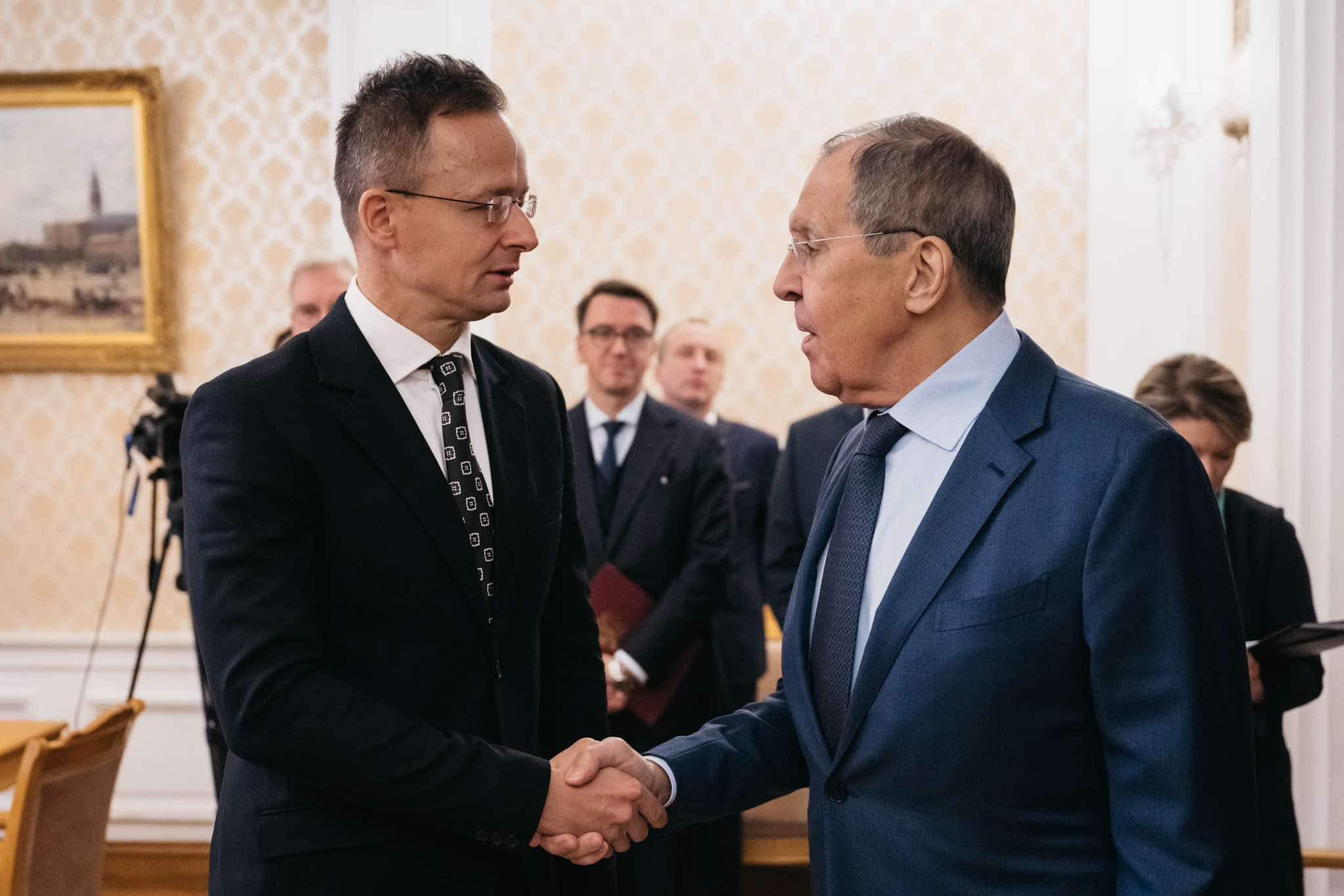
The Hungarian government must increase its efforts towards peace as the risk of escalation in the war in Ukraine is more serious than ever before, the Hungarian foreign minister said in Moscow on Monday, adding that efforts had to also be made to keep the channels of diplomacy open.
Lavrov
Sergei Lavrov began the meeting by saying in the first three minutes that Russia appreciates Viktor Orban’s “independent policy”, that they see Hungary’s sincere efforts to restore peace, and that he believes there is sustainable growth in both the Russian and Hungarian economies.
Szijjártó
At talks held with his Russian colleague, Sergei Lavrov, Péter Szijjártó underlined that the risk of escalation of the war “is more serious than ever before.”
“There have been many dangerous and irresponsible decisions made in the recent past that for a country neighbouring Ukraine, such as Hungary, pose particular threats,” he said.
He said the past one thousand days had proved that the war had no solution in the battlefield, it could only be ended through negotiations for which “the channels of diplomacy have to be kept open”.
“Those who close those diplomatic channels or attack those who keep them open do not really want peace,” he said.
Szijjártó said developing bilateral ties with Russia in areas not affected by sanctions “is a clear and open goal” of the Hungarian government.
Lavrov
Then, the Russian Foreign Minister took the floor again, but in the next 10 minutes or so, he did not give it to Szijjártó, so only Lavrov spoke.
The Russian Foreign Minister returned to the themes often voiced by Moscow, the situation in Ukraine, and spoke at length about how anyone who speaks out against peace does not even represent the interests of his own people, saying that they see the likes of Viktor Orban’s peace mission from China, South Africa and several Arab countries. He also criticised the Western double standards they see in Russia.
Practically every month there is a meeting between the Russian and Hungarian Foreign Ministers:
- End of October – Szijjártó in Minsk: Record gas deliveries highlight Hungary’s energy cooperation with Russia
- September: Hungarian foreign minister met again with Russian FM Lavrov to discuss cooperation
UPDATE
“Russia committed to maintaining Hungary energy supply”
Minister of Foreign Affairs and Trade Péter Szijjártó said in Moscow on Monday that Russia will continue to deliver crude, gas, and nuclear fuel to Hungary in spite of new sanctions.
In a statement issued by his ministry, Szijjártó said he had held talks with Deputy Prime Minister Alexander Novak and a number of executives of energy industry companies and acknowledged the important role deliveries from Russia play in ensuring Hungary’s secure energy supply.
He added that the issue was not a “political matter” , but one of “physical reality” and of infrastructure.
“We have no intent of giving up this good cooperation. If for the only reason that nobody has given us a better offer. We know of no other energy sources that are more secure or more competitively priced,” he said.
Szijjártó said
the inclusion of Gazprombank on the United States’ sanctions list was an attempt to put countries in Central and Southeastern Europe that use Russian energy in a difficult position.
Discussing the matter on Monday, Deputy Prime Minister Novak and the energy company executives affected by the measure affirmed their interest in cooperation and the continuation of energy deliveries, he added.
“We’ve committed to finding a solution to the situation,”
he said. He added that the Hungarian government would do everything in its power to ensure the country’s secure energy supply.
He noted that other countries in the region were “in the same shoes” and were working together to resolve the situation.
Russian Foreign Minister Lavrov again received the Hungarian Foreign Minister in Moscow

The Hungarian government must increase its efforts towards peace as the risk of escalation in the war in Ukraine is more serious than ever before, the Hungarian foreign minister said in Moscow on Monday, adding that efforts had to also be made to keep the channels of diplomacy open.
Lavrov
Sergei Lavrov began the meeting by saying in the first three minutes that Russia appreciates Viktor Orban’s “independent policy”, that they see Hungary’s sincere efforts to restore peace, and that he believes there is sustainable growth in both the Russian and Hungarian economies.
Szijjártó
At talks held with his Russian colleague, Sergei Lavrov, Péter Szijjártó underlined that the risk of escalation of the war “is more serious than ever before.”
“There have been many dangerous and irresponsible decisions made in the recent past that for a country neighbouring Ukraine, such as Hungary, pose particular threats,” he said.
He said the past one thousand days had proved that the war had no solution in the battlefield, it could only be ended through negotiations for which “the channels of diplomacy have to be kept open”.
“Those who close those diplomatic channels or attack those who keep them open do not really want peace,” he said.
Szijjártó said developing bilateral ties with Russia in areas not affected by sanctions “is a clear and open goal” of the Hungarian government.
Lavrov
Then, the Russian Foreign Minister took the floor again, but in the next 10 minutes or so, he did not give it to Szijjártó, so only Lavrov spoke.
The Russian Foreign Minister returned to the themes often voiced by Moscow, the situation in Ukraine, and spoke at length about how anyone who speaks out against peace does not even represent the interests of his own people, saying that they see the likes of Viktor Orban’s peace mission from China, South Africa and several Arab countries. He also criticised the Western double standards they see in Russia.
Practically every month there is a meeting between the Russian and Hungarian Foreign Ministers:
- End of October – Szijjártó in Minsk: Record gas deliveries highlight Hungary’s energy cooperation with Russia
- September: Hungarian foreign minister met again with Russian FM Lavrov to discuss cooperation
UPDATE
“Russia committed to maintaining Hungary energy supply”
Minister of Foreign Affairs and Trade Péter Szijjártó said in Moscow on Monday that Russia will continue to deliver crude, gas, and nuclear fuel to Hungary in spite of new sanctions.
In a statement issued by his ministry, Szijjártó said he had held talks with Deputy Prime Minister Alexander Novak and a number of executives of energy industry companies and acknowledged the important role deliveries from Russia play in ensuring Hungary’s secure energy supply.
He added that the issue was not a “political matter” , but one of “physical reality” and of infrastructure.
“We have no intent of giving up this good cooperation. If for the only reason that nobody has given us a better offer. We know of no other energy sources that are more secure or more competitively priced,” he said.
Szijjártó said
the inclusion of Gazprombank on the United States’ sanctions list was an attempt to put countries in Central and Southeastern Europe that use Russian energy in a difficult position.
Discussing the matter on Monday, Deputy Prime Minister Novak and the energy company executives affected by the measure affirmed their interest in cooperation and the continuation of energy deliveries, he added.
“We’ve committed to finding a solution to the situation,”
he said. He added that the Hungarian government would do everything in its power to ensure the country’s secure energy supply.
He noted that other countries in the region were “in the same shoes” and were working together to resolve the situation.
Can the endless queues at the Ukrainian-Hungarian border be resolved? Governments seek EU support 🔄
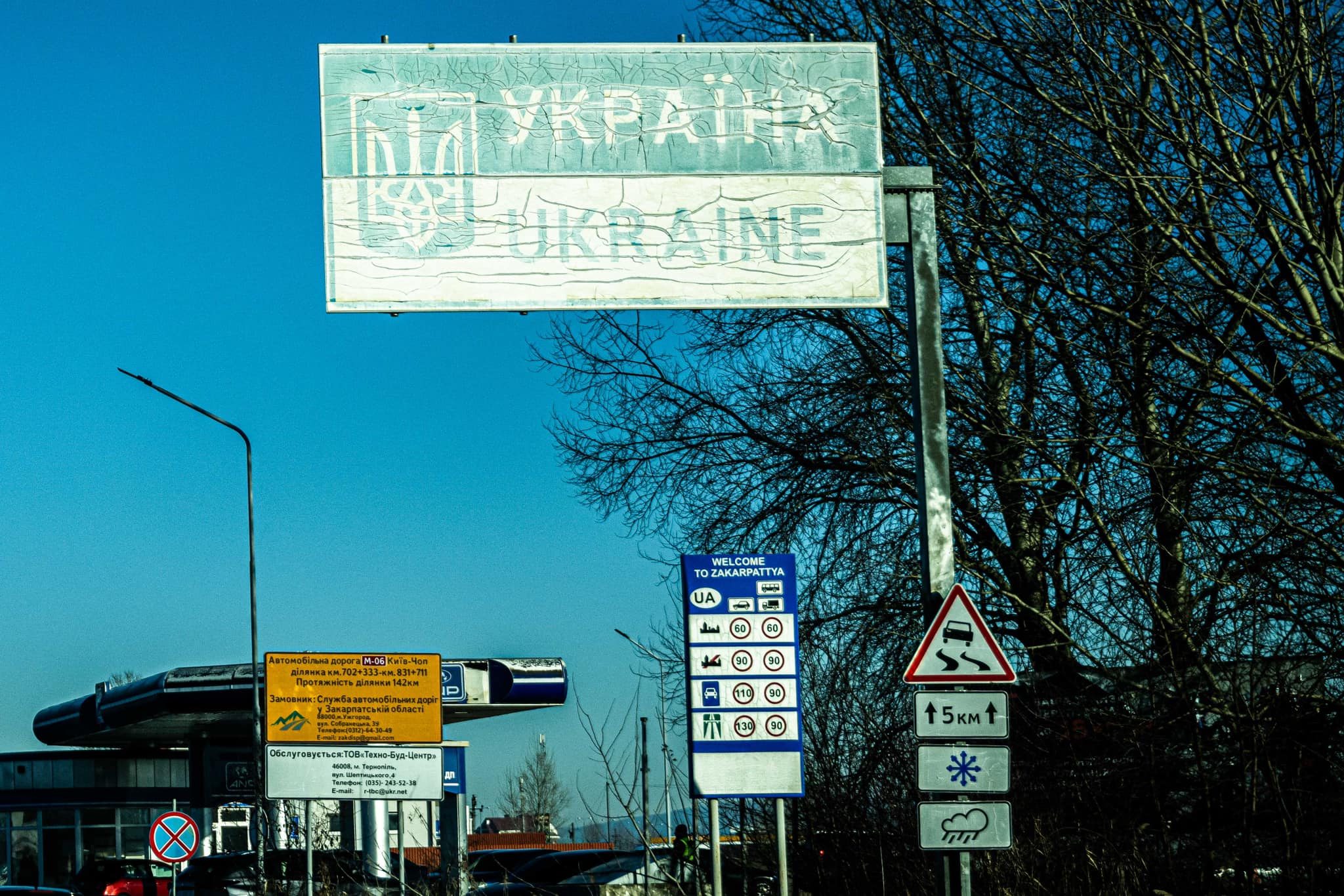
Ukrainian-Hungarian border: Levente Magyar, a state secretary at the Ministry of Foreign Affairs and Trade, said at a border crossing on Monday that Hungary and Ukraine will submit a plan for EUR 1 bn in joint upgrades of frontier and road infrastructure to Brussels.
The plan includes a cross-border motorway connection, a new crossing for lorries and related road developments, Magyar said.
He added that the Beregsurany-Astei border crossing would undergo a two-year renovation and expansion, while a crossing between Nagyhodos and Velyka Palad would open soon, bringing the number of crossings between Hungary and Ukraine to six.
Magyar acknowledged the divergent views on some matters of the governments of Hungary and Ukraine, but said both agreed that expanding border-crossing capacity was necessary to boost trade and advance Ukraine’s integration with the European economy.
He said direct passenger train service between Budapest and Kyiv would start soon.
Viktor Mykyta, the deputy head of the Office of the President, said border crossings needed to be expanded as both Ukraine and Hungary were on transit routes.
read also:
Russia’s vision for Ukraine in 2045 might include Hungary – What’s the endgame for Moscow?
Zelensky’s adviser defends PM Orbán: Claims Hungarian leader is ‘not pro-Russian at all’
Can the endless queues at the Ukrainian-Hungarian border be resolved? Governments seek EU support

Ukrainian-Hungarian border: Levente Magyar, a state secretary at the Ministry of Foreign Affairs and Trade, said at a border crossing on Monday that Hungary and Ukraine will submit a plan for EUR 1 bn in joint upgrades of frontier and road infrastructure to Brussels.
The plan includes a cross-border motorway connection, a new crossing for lorries and related road developments, Magyar said.
He added that the Beregsurany-Astei border crossing would undergo a two-year renovation and expansion, while a crossing between Nagyhodos and Velyka Palad would open soon, bringing the number of crossings between Hungary and Ukraine to six.
Magyar acknowledged the divergent views on some matters of the governments of Hungary and Ukraine, but said both agreed that expanding border-crossing capacity was necessary to boost trade and advance Ukraine’s integration with the European economy.
He said direct passenger train service between Budapest and Kyiv would start soon.
Viktor Mykyta, the deputy head of the Office of the President, said border crossings needed to be expanded as both Ukraine and Hungary were on transit routes.
read also:
Russia’s vision for Ukraine in 2045 might include Hungary – What’s the endgame for Moscow?
Zelensky’s adviser defends PM Orbán: Claims Hungarian leader is ‘not pro-Russian at all’

